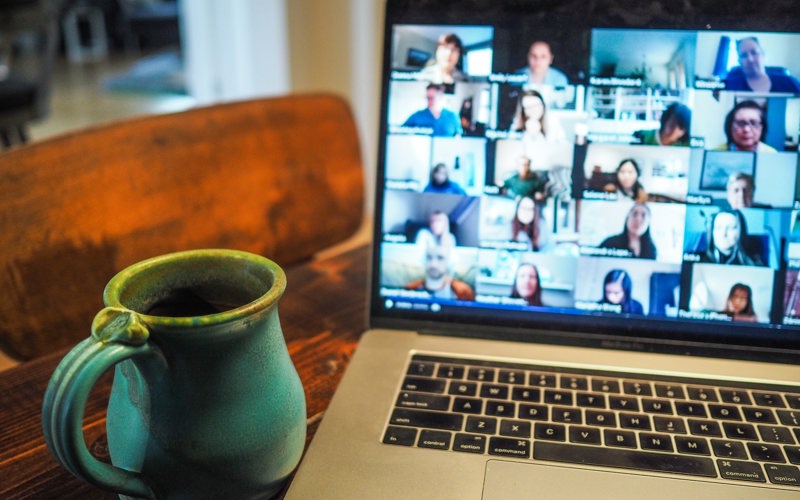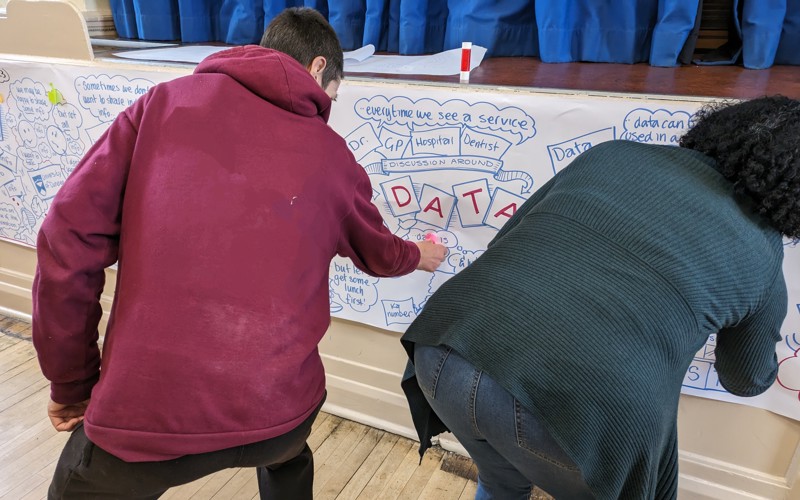Grampian Regional Equality Council (GREC) turns 40 this year – so as an organisation, we’ve been reflecting on what we do, how we do it, and why. Our main purpose is to tackle discrimination and to promote positive community relations. Of course, this includes supporting people who face discrimination, and building relationships with and between communities. However, over the past few years, we’ve been seeing more and more how policy decisions directly affect people in vulnerable groups.
It started out as a hunch – it seemed like a lot of people were coming to our casework service with similar problems, or talking about the same kinds of things at our language café. We started seeing policy news echoing in the lives of the people we work with – whether Brexit or benefit cuts, changes to visa rules or GP practices switching to e-Consult. In 2021, our Policy Officer – a new post – began to look at these speculations in a more systematic way, bringing together information from all our services and projects to identify key issues.
It was in this context that we applied to the RDS Public Engagement Fund. With growing interest in lived experience groups as a tool for research and policymaking, we were keen to find out whether people in ethnic minority communities would be interested in getting involved in this way. We also wanted to hear about how they understood research, and what areas they wanted to see more research on, specifically around inequalities in North East Scotland.
Funding from RDS allowed us to hold six workshops with ethnic minority communities in Aberdeen, where we explored these topics with 40 participants: 15 men and 25 women, ranging in age from their 20s to 60s, from diverse ethnic and national backgrounds.
Broadly speaking, participants defined research as a tool for gathering information to understand a topic, or to find answers to a question. Most felt that research should solve problems or improve people’s lives. Many were enthusiastic about getting involved in research, especially in lived experience groups to help bring knowledge from their own lives and communities into research and policy.
The majority of time in the workshops was spent discussing research topics:
Information and Support for Newcomers
In many ways, this topic encompasses all the others – many problems arise from a lack of information. Participants wanted to see more research on where immigrants find information, whether that information is reliable, and whether it meets their needs. Participants were keen to identify ways to improve access to reliable information, especially on everyday needs, health, rules and responsibilities, expectations and unspoken rules, people’s rights at work or as tenants, entitlements to benefits and other support, and how to report problems or find help.
Employment
Especially under-employment among skilled immigrants, barriers to employment and prejudice in the workplace.
Integration, Culture Shock and Mental Health
Understanding people’s experiences and identifying ways to make things easier, including how to get involved with community life.
Racism and Unequal Treatment
Including developing a better understanding of why people are treated differently between different groups, consciously or unconsciously. Also identifying strategies to reduce racism, especially in public institutions.
Children and Schooling
Understanding the experiences of children, young people, and their families, especially where misunderstandings and conflicts arise (often ‘unspoken rules’ of discipline, behaviour, and expectations). Also developing strategies to help families navigate these areas more effectively and support young people to thrive.
Healthcare
Including experiences with the NHS, barriers to accessing healthcare, and adverse outcomes from difficulties accessing healthcare.
Recommendations
There was a clear appetite for involvement in research and Lived Experience groups, so we recommend exploring how this might look for public and third sector organisations in the North East, and how evidence from these groups can help shape policy. By amplifying the voices of seldom heard communities, Lived Experience groups can contribute to research and help build a body of evidence that supports decision-making processes. As co-produced spaces, they offer a more sustainable engagement model, whilst building capacity at the grassroots level.
Next Steps
In late March or early April, GREC will be hosting an event for participants and community members to discuss the results of the project and explore developing a Lived Experience group. In the meantime, a placement student is conducting a literature review on best practice in this area, which will feed into the process. More broadly, as GREC reviews and refreshes our strategy as an organisation, the RDS project has contributed to a growing evidence base for influencing policy.
Stay updated with the 'How Fair is North East Scotland?' project
Grampian Regional Equality Council website
On X / Twitter



